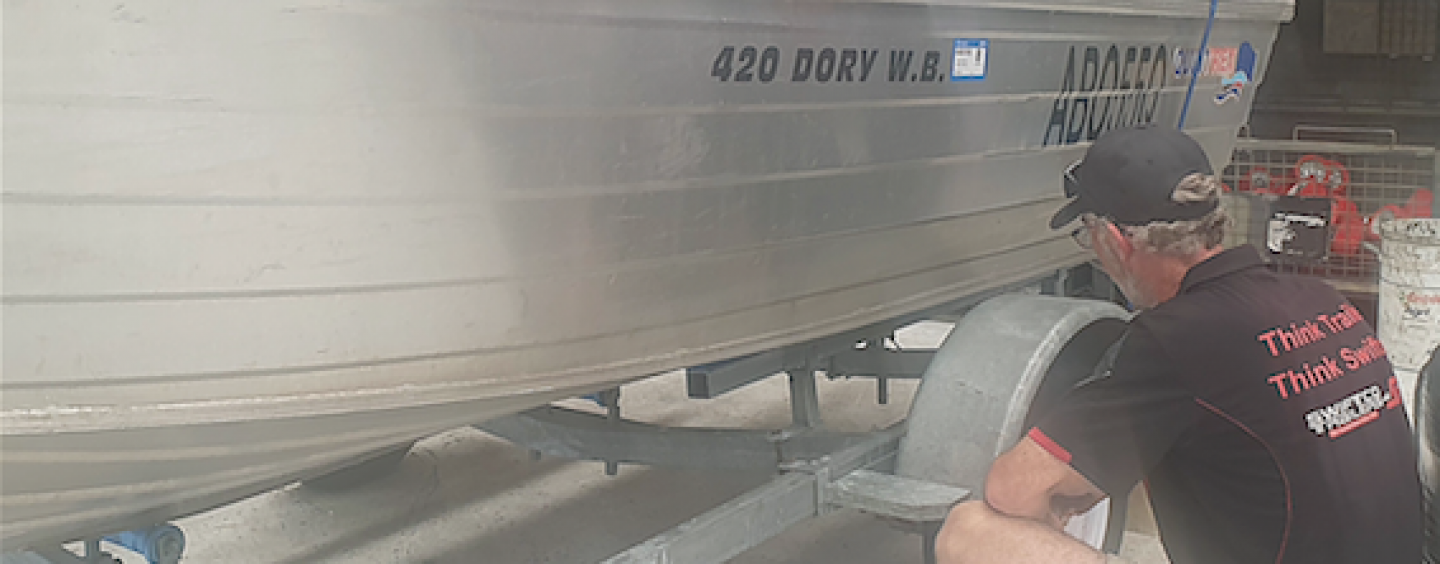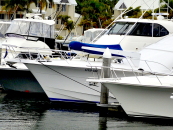Trailers can travel on highways up to speeds of 110kph. Therefore, just as with the vehicles that tow them, it is imperative that trailers also required safety certificates in Queensland.
A safety certificate certifies that a vehicle meets the safety requirements of the Transport Operations (Road Use Management) Act 1995.
In Queensland, a safety certificate is needed when:
● a registered light vehicle is offered for sale in Queensland, or
● transferring registration to a new owner, or
● when transferring to Queensland registration from
another state or territory, or
● when re-registering an unregistered vehicle, or
● when registering a trailer manufactured overseas.
Therefore, if you have sold your boat and the sale includes a registered or unregistered trailer, with an aggregate trailer mass (ATM) between 750kg and 3500 kg, you must obtain a safety certificate on the trailer before offering for sale.
Only Approved Inspection Stations (AIS) can complete the inspection and supply a supporting safety certificate. An AIS location must have fully trade-qualified mechanics onsite with vast experience in vehicle repairs and maintenance. Individual mechanics, the facility, and the business undergo strict protocol to be recognised as an AIS. Swiftco Trailers on the Gold Coast are a Department of Transport and Main Roads (TMR) registered AIS, and can usually provide same-day service.
A safety inspection on a trailer covers the basic vehicle safety standards for many components, including:
● Wheels and tyres are of a suitable type and condition and they provide the necessary load carrying capacity, speed rating and control of the vehicle.
● The brakes operate effectively and are correctly adjusted.
● The trailer frame is structurally sound and free from any defects, protrusions or additional fittings that are likely to increase the risk of bodily injury to any person in tow or other road users.
● All lamps, reflectors and other electrical lighting components are operational, and to ensure the vehicle’s electrical system, is secured and operating correctly.
● Verify the trailers VIN plate.
● All tow couplings and associated components are in a serviceable condition and that they provide the necessary load carrying capacity.
● Suspension is in good working order.
Vehicles, including trailers built from 1969 for the Australian market, are designed to meet specific design requirements, most of which provide safety standards for the vehicle, its driver, and other vulnerable road users. These requirements are set out in Australian Design Rules (ADRs) and are not easily checked without extensive test facilities. AIS are not expected to conduct highly complex or destructive tests, but they are required to check some in-service aspects of ADR requirements. For instance, examiners should make sure that the required ADR systems are present, are not obviously modified, and that they are sound and functional.
There are some exceptions to the rules of obtaining a safety certificate, so it is best to check with the TMR if you fall under one of the following categories:
● the disposer is in an exempt or remote area;
● a beneficiary of a deceased estate; or,
● between spouses (including separated registered partners – until such time that the divorce or application to end the registered relationship is finalised).
www.swiftcotrailers.com
Published in the April – June 2020 edition.






























